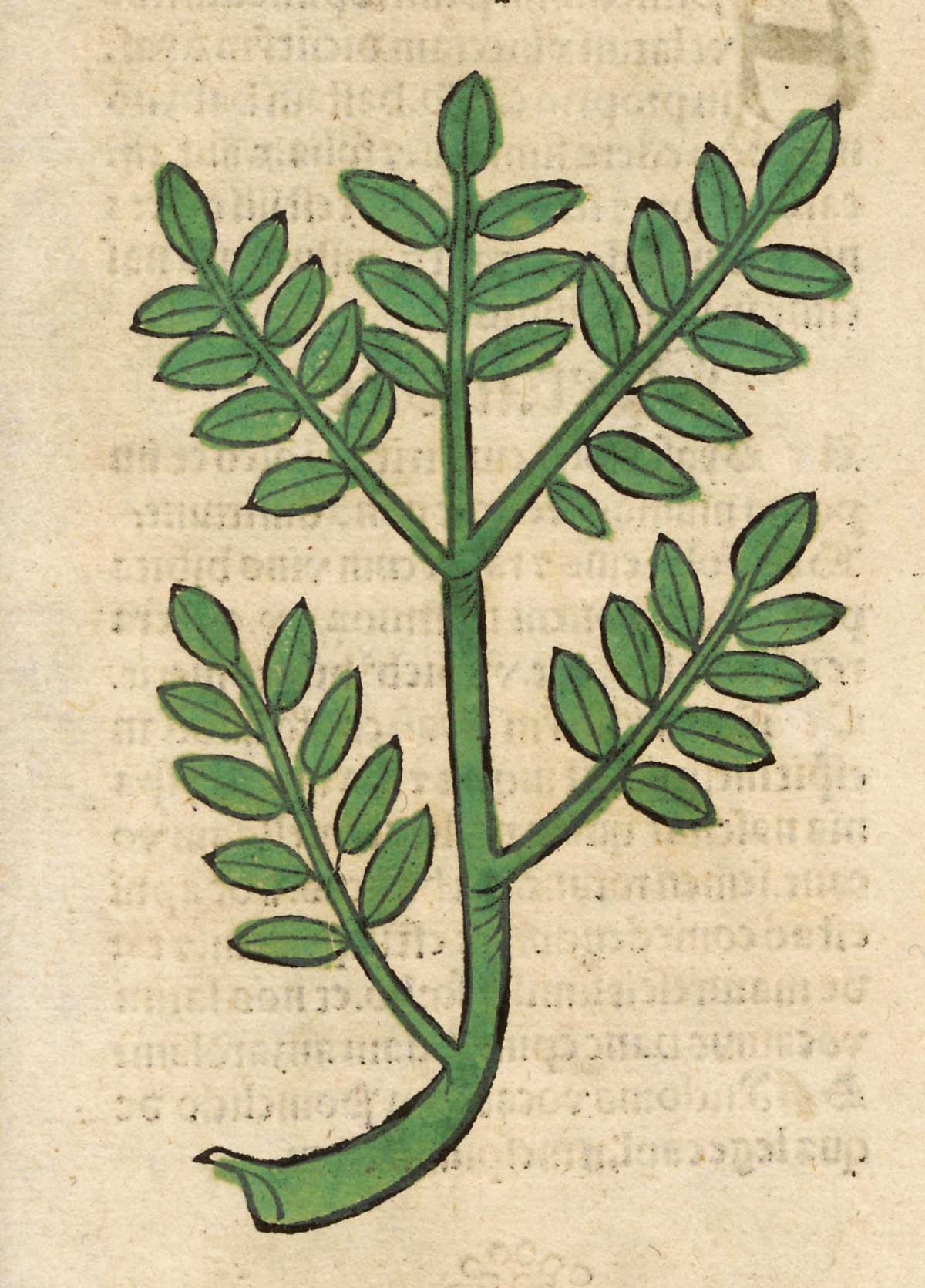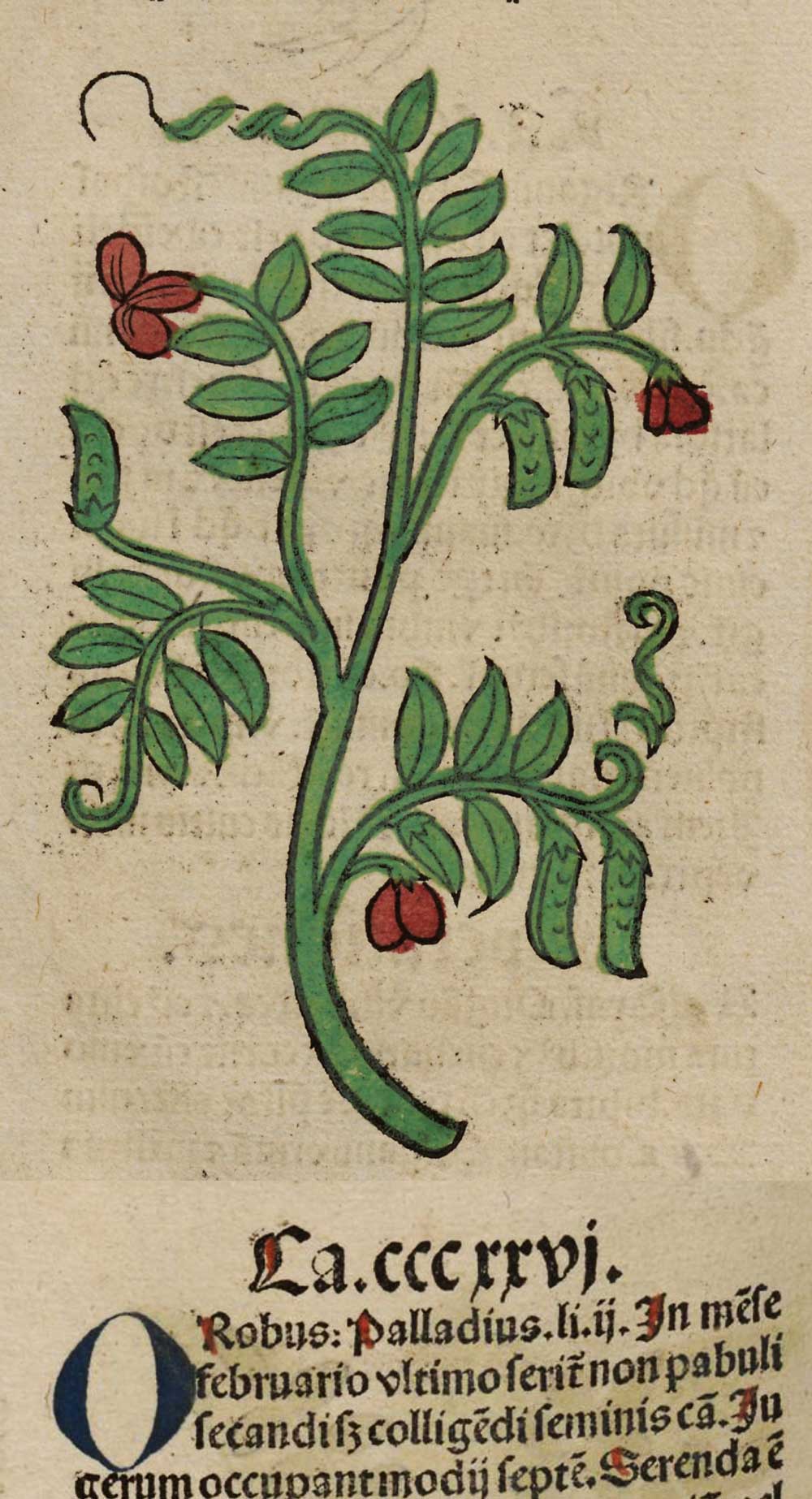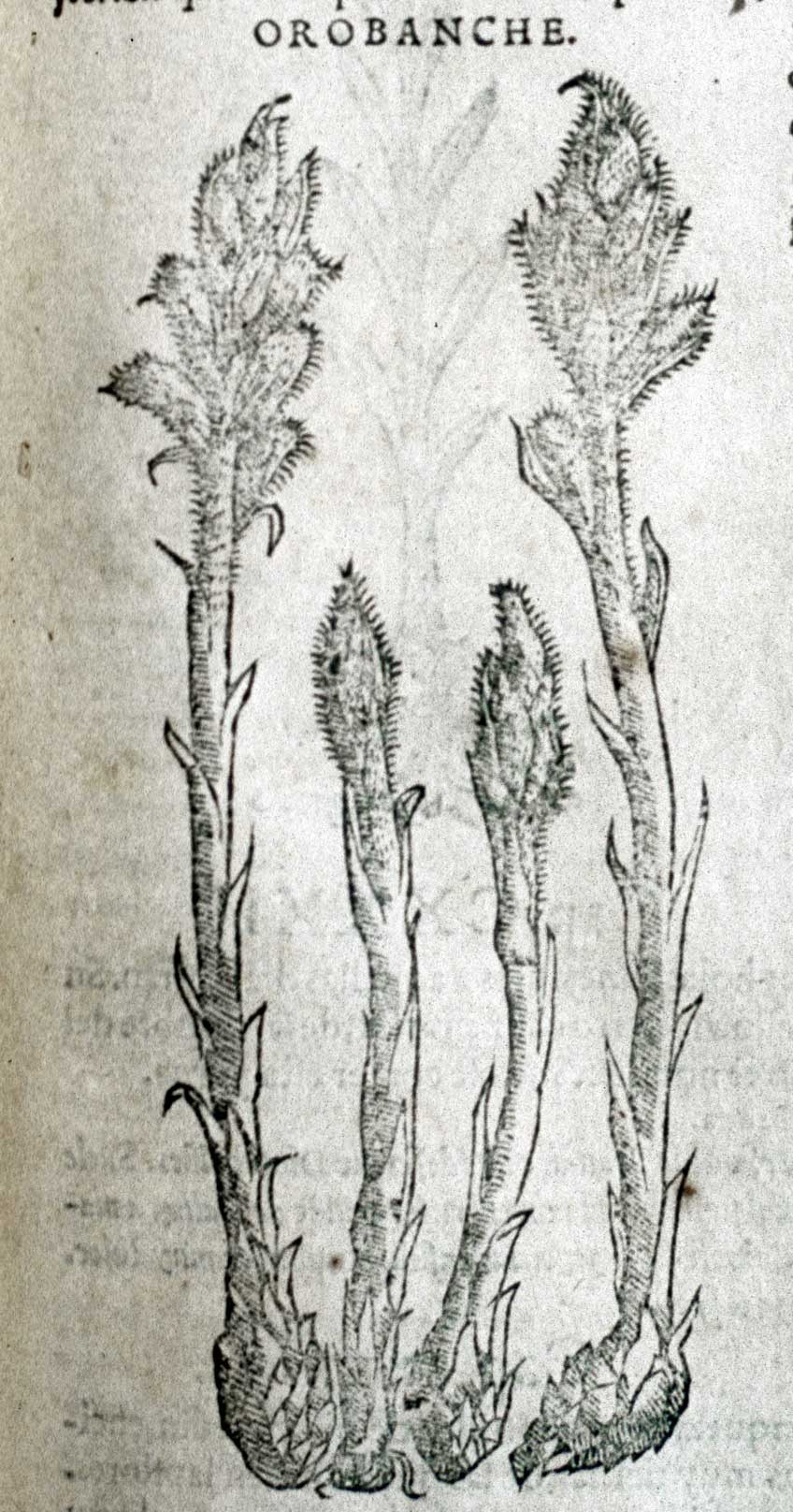than orobanche to chickpeas,
Original French: que Orobanche aux poys Chices:
Modern French: que Orobanche aux poys Chices:
Among the examples of pairings whose antipathies are not as vehement as the hatred thieves have of a certain usage of Pantagruelion.
The section from “La presle aux fauscheurs” (horse-tail to mowers) to “le Lierre aux Murailles” (ivy to walls), including this phrase, was added in the 1552 edition.
Notes
Epithimum
Orobus
Epithimum (text)
orobanche
orobanche
Est herba quae cicer enecat et ervum circum-ligando se, vocatur orobanche; tritico simili modo aera, hordeo festuca quae vocatur aegilops, lenti herba securiclata quam Graeci a similitudine pelecinum vocant; et hae conplexu necant.
There is a weed that kills off chick-pea and bitter vetch by binding itself round them, called orobanche [‘Vetch-strangler.’ Not the modern botanists’ orobanche or broom-rape but plants such as dodder and bindweed]; and in a similar way wheat is attacked by darnel, barley by a long-stalked plant called aegilops and lentils by an axe-leaved plantb which the Greeks call axe-grass from its resemblance; these also kill the plants by twining round them.
orobanche
Veneficiis rostrum lupi resistere inveteratum aiunt ob idque villarum portis praefigunt. hoc idem praestare et pellis e cervice solida manica existimatur, quippe tanta vis est animalis praeter ea quae retulimus ut vestigia eius calcata equis adferant torporem.
Sorceries are said to be counteracted by a wolf’s preserved muzzle, and for this reason they hang one up on the gates of country houses. The same effect is supposed to be given by the whole fur from a wolf’s neck, the legs included, for so great is the power of the animal that, besides what I have already stated, his footprints when trodden on by horses make them torpid.
Orobanche
Voiez Pline, l. 18., chap. 17. C’est l’herbe teigne des Parisiens, appelée herba lupa par les Italiens.
orobanche
Plante nuisible, communément appellée herbe-teigne.
orobanche
Voyez Pline, liv. XVIII, chap. XVII: c’est l’herbe-teigne des Parisiens, appellée herba lupa par les Italiens. (L.) — C’est une plante nuisible.
Orobanche to Chick-peas
Pliny xviii. 17, § 44 (155).
orobanche aux poys chices
Tout ce passage est inspiré de Pline (XVIII, 44) — Orobanche (de ὄροδοζ, ers, ἄγχω, j’étrangle, allusion au parasitisme de ces plantes sur les légumineuses), genre de plantes parasites de la fam. des Orobanchées. — «Est herba quæ cicer enecat et ervum, circumligando se: vocatur orobanche», dit Pline. Mais ce texte s’applique plutôt, comme le fait remarquer Fée, à la cuscute (C. europæa, L. ?) Par contre, la plante que Pline décrit ailleurs (XXII, 80), sous le même nom d’orobanche ou cynomorion est bien une orobanche: soit O. caryophyllacea, Smith, soit O. (Phelypæa) ramosa, L. De Candolle assure qu’O. ramosa nuit beaucoup, en Italie, aux plantations de fèves. L’orobanche du pois chiche est O. speciosa, D. C. (Paul Delaunay)
orobanche, aegilops, securidaca, antranium, l’yvraye
Les cinq exemples suivants sont tous empruntés au même chapitre de Pline (XVIII, 44) (LD).
orobanche
Cf. De latinis nominibus, s.v. Epithymum et orobanche.
Orobanche
Orobanche [Latin (Pliny), adopted from Greek orobagxh, formed on oroboj Orobus + agxein to throttle.]
A genus of leafless plants (Tournefort, 1700), parasitical on the roots of other plants, chiefly Leguminosæ; the broomrape. Also attributive
1562 William Turner A new herball, the seconde parte ii. 71 b, It choketh and strangleth them [pulses] where of it hath the name of Orobanche, that is chokefitche or strangletare.
1601 Philemon Holland, translator Pliny’s History of the world, commonly called the Natural historie II. 145 A weed there is which we named Orobanche, for that it choketh Eruile and other pulse.



